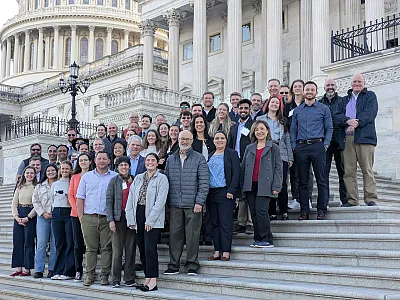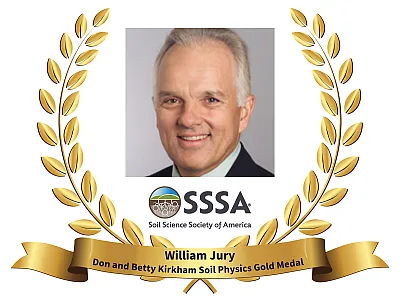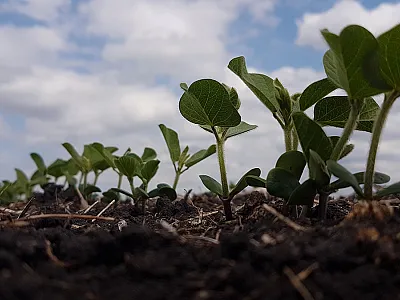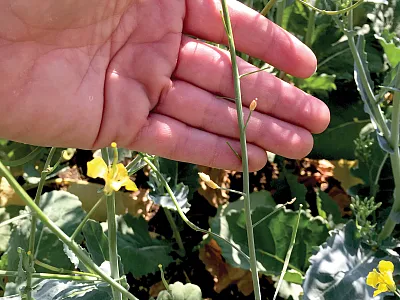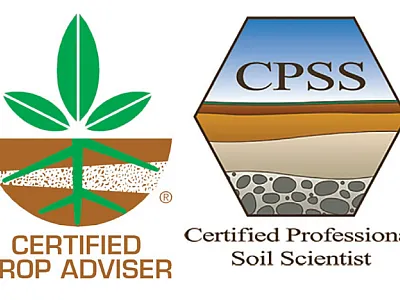Science meets policy at Congressional Visits Day
Society members, CCAs advocate for research funding and the value of science
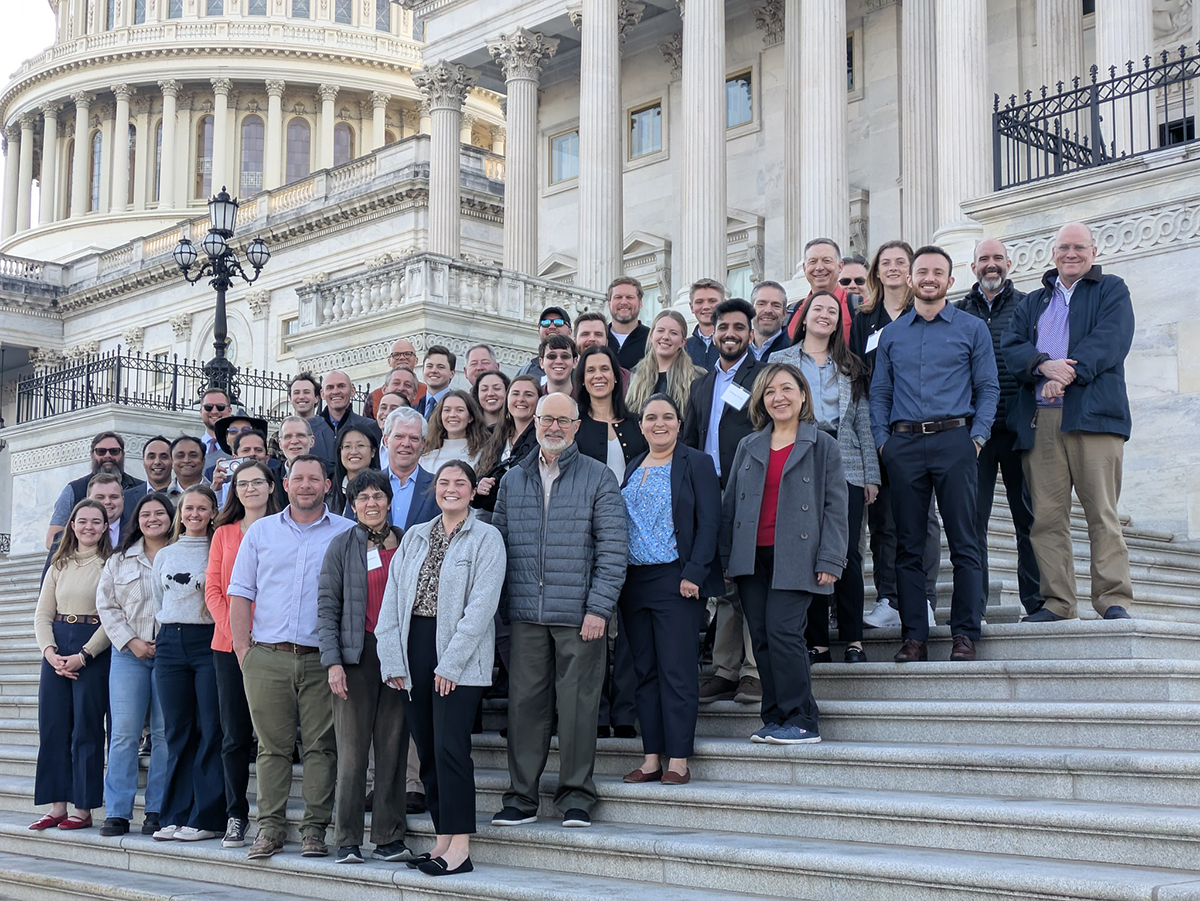
During Congressional Visits Day, held February 26 this year, Society members and CCAs participated in more than 80 visits with lawmakers and their staff in Washington, DC. The primary message was that USDA research is vital to a secure and vibrant food and ag system in the United States.
A team of Certified Crop Advisers (CCAs) and members of the American Society of Agronomy, Crop Science Society of America, and Soil Science Society of America sits in the office of U.S. Rep. Eugene Vindman, making the case from multiple perspectives about why USDA funding is vital.
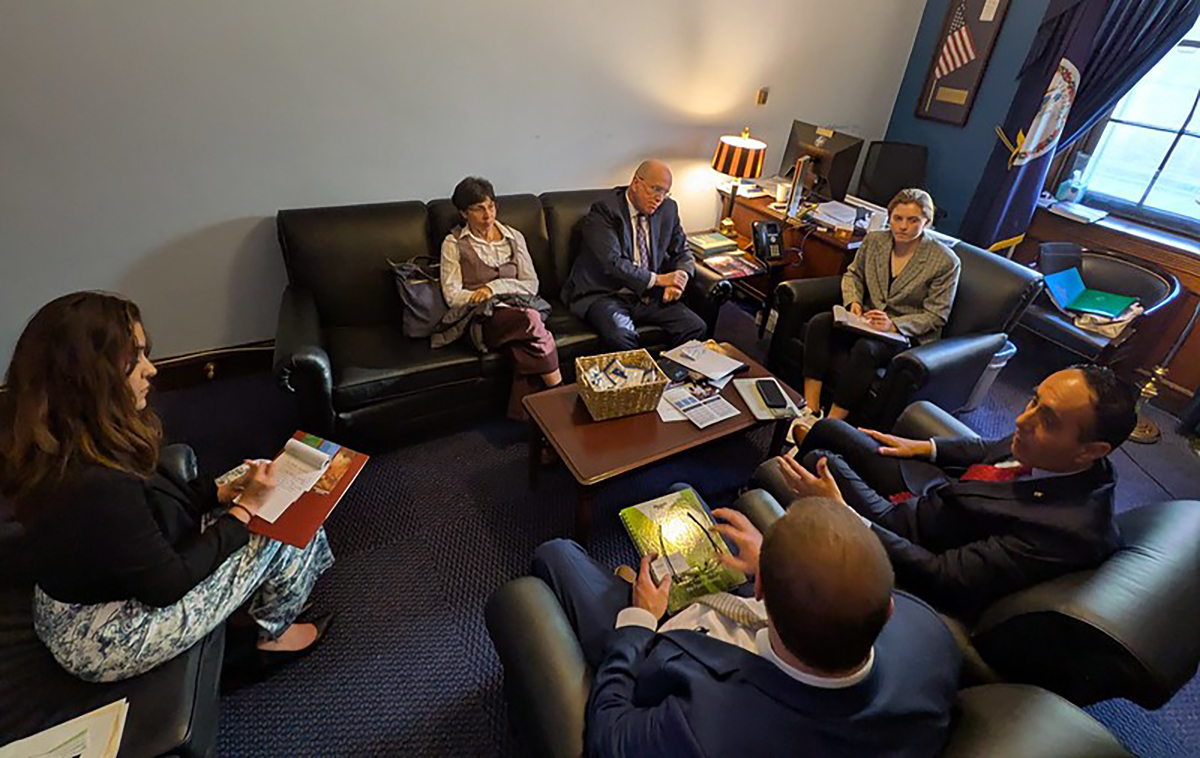
It’s the final meeting of the day for this team, representing mid-Atlantic states, one of 12 such groups participating in Congressional Visits Day, as they sit in the office of the freshman Virginia representative, the newest addition to the House Agriculture Committee. The team speaks with his senior legislative assistant, Fabiana Corsi Mendez.
Food cost and security are potent topics to lawmakers, so a CCA is part of the team to share how research funding affects the farm.
“It’s my job to keep these guys in business and keep them sustainable,” said Alex Walker, CCA, making the direct connection to farmers. The work funded by the USDA is unlikely to be picked up by the private sector, he explains.
“I can’t stress enough how much the USDA funding is critical,” he said.
Societies’ CEO Jim Cudahy pushes the argument forward by citing a USDA Economic Research Service study that found every dollar spent on public agriculture research generated, on average, $20 in benefits to the U.S. economy.
Meanwhile, there’s plenty of additional work to be funded, said retired federal researcher Nancy Cavallaro. She tells the staffer that even the highest priorities in the USDA’s target grants program, called the Agriculture & Food Research Initiative, or AFRI, are not entirely funded.
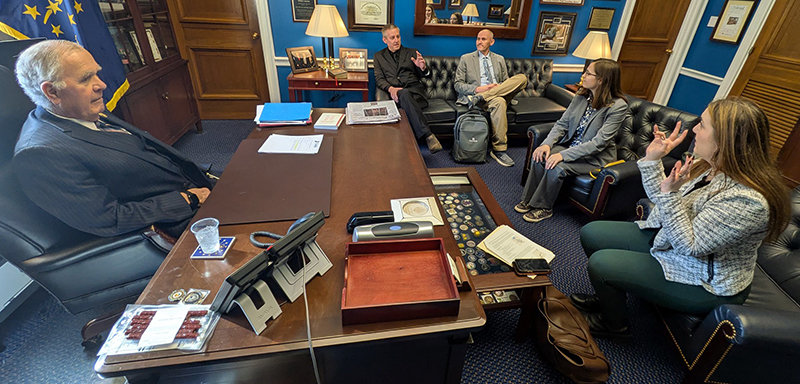
Ava Veith, a plant physiology graduate student at Virginia Tech, talks about how cuts to USDA funding could dissuade the next generation of students from focusing on agricultural sciences.
This is just one of the more than 80 visits that took place during Congressional Visits Day, held February 26 this year, throughout the labyrinthine office buildings surrounding the U.S. Capitol. The stories change, but the messaging stays the same: USDA research is vital to a secure and vibrant food and ag system in the United States.
Additionally, the incoming administration’s focus on spending cuts added a new urgency to this advocacy effort. Instead of focusing entirely on annual funding requests, participants emphasized the importance of USDA research to supporting our food system.
The conversations in congressional offices were the culmination of careful preparation. The day before, more than 50 Society advocates gathered to equip themselves with the knowledge and strategies to make the most of their meetings.
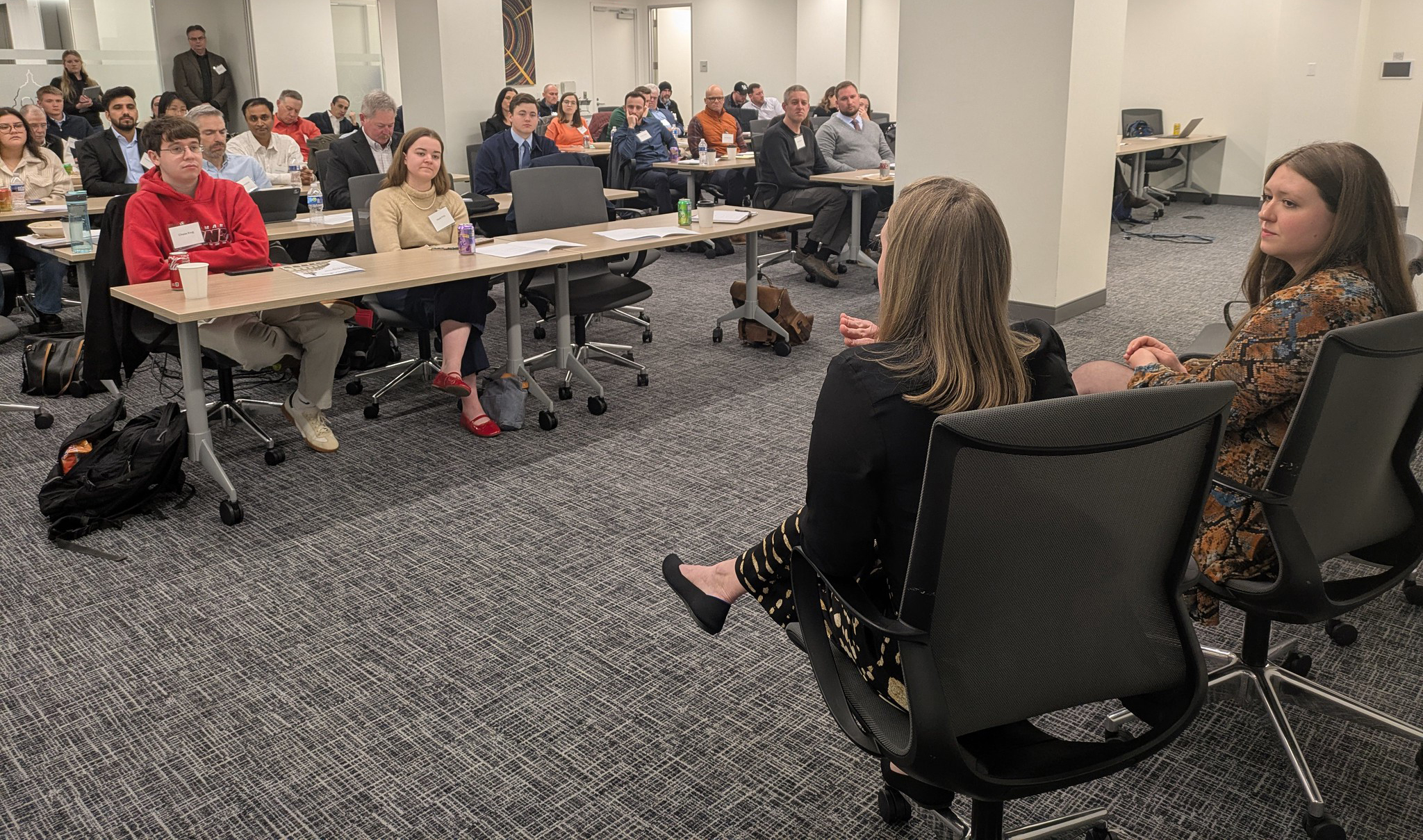
Be local, be nice
Julie McClure, vice president at the Torrey Advisory Group and the Societies’ legislative representative on the Hill, told attendees that arguments rooted in local impacts tend to be the most effective. Lawmakers want to know what’s affecting their own constituents, and they listen best to those constituents themselves, which is why teams are scheduled with meetings with offices from their region.
Her message was reinforced by multiple guest speakers.
“We like to talk about PIs as small business owners who deal with staffing and funding. Think of yourself as a small business owner, someone who’s bringing dollars, bringing workforce, bringing innovation to a region and state.”
“People love to hear about local issues,” said Conor Simons, government affairs associate at the National Association of Conservation Districts. “It sounds like fluff coming from me. I’ve never worked on a farm. That means more than you could ever really know.”
And adopting the lingo of business can help, McClure said.
"We like to talk about PIs as small business owners who deal with staffing and funding,” she said. “Think of yourself as a small business owner, someone who’s bringing dollars, bringing workforce, bringing innovation to a region and state.”
And be nice. Friendliness is the first step to being a trusted resource on agricultural issues.
Samantha Barnett, a legislative assistant in the U.S. Senate, said she wants to hear from real people with personalities and a sense of humor.
“If you want to make a joke about potassium application, this is the place to do it. Make yourself a real person,” she said.
Finally, be direct. Make a request. The offices expect it; more than that, they want it.
“It’s good to let them know, ‘This is what we want,” McClure said. “They want to give you a win because they can write a press release about it and talk about it in the district.”
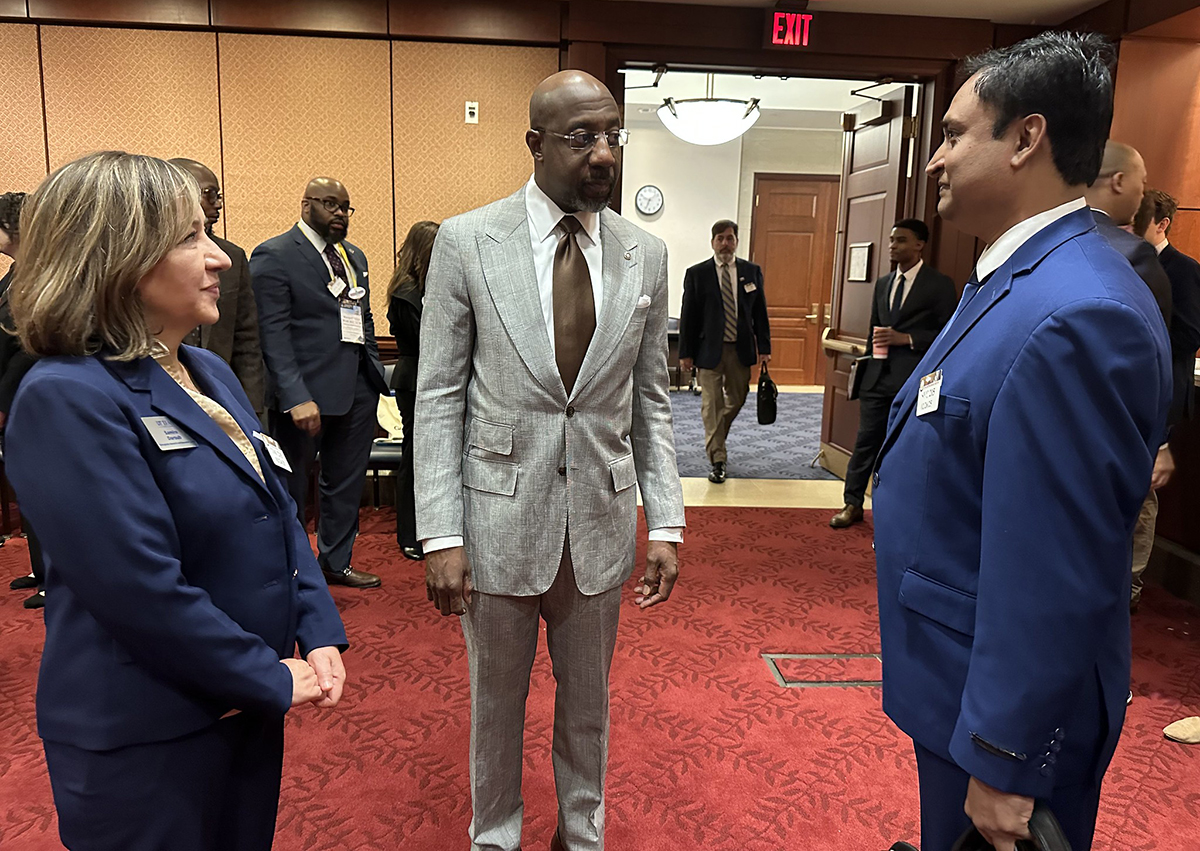
Why they came
For Leah Treffer, a graduate student who studies plant breeding at Cornell, policy is not distinct from science. Science relies on public acceptance for funding, regulation, and support to make its impact in the real world.
“Our research is particularly focused on supporting small-scale and organic farmers, who are often the most affected by funding cuts,” she said. “Farmers may lack the financial flexibility to adopt new technologies or research-driven practices without adequate support from public funding.”
Congressional Visits Day attendees come from across the country and represent diverse careers and experiences. Many applied for and received a Society award to pay for their travel and lodging.
Many attendees had no experience with science policy or advocacy before coming. The prospect of walking into federal lawmakers’ offices can be intimidating—at first, said Tom Hill, a CCA from central Illinois.
“Once we all figured out everybody’s there to help ag, regardless of which side of the table they’re on, it made sense,” he said.
Treffer said her team and the training, combined with the disarming manner of the lawmakers and their staffs, gave her confidence.
“The people we met were all very kind and very attentive. I felt comfortable by the end of it,” she said.
There are other benefits, too. In addition to the experience, attendees make important connections across a variety of fields, Hill said.
“It’s a great experience, valuable for sure. It’s not only the people you meet in the House and Senate, but the people you meet the day before … with all different backgrounds, from universities to farm managers to CCAs,” he said.
To maintain momentum from Congressional Visits Day, participants are encouraged to continue building relationships with congressional offices.
“The annual funding process is in full swing for next year, so it’s critical that constituent scientists and CCAs continue to share the value of USDA research programs and ask Congress for their support,” McClure said.
“It’s a great experience, valuable for sure. It’s not only the people you meet in the House and Senate, but the people you meet the day before … with all different backgrounds, from universities to farm managers to CCAs."
Treffer said Congressional Visits Day didn’t end after she came home.
“I continue to think about the conversations we had within our group and others we met, and I continue to read up.”
There is more work to do.
“What I hope my representatives soon realize is the implications to food security, health, and power that comes with our leadership and that investments into research are the most efficient way to strive towards a shared national goal.”
Want to get involved?
Our science policy efforts could benefit from your expertise and enthusiasm.
The easiest way to get involved in policy is to get informed! Pick one member of your congressional delegation—your federal representative or either senator—and sign up for their email list. Just learning what issues they speak about will help you be better informed.
You can also volunteer to represent one of the Societies by serving on the Science Policy Committee. Also, watch for policy updates and calls to action via email or Crops & Soils magazine.
If you’re interested in joining 2026 Congressional Visits Day for 2026, apply for an award when applications open this fall.
Text © . The authors. CC BY-NC-ND 4.0. Except where otherwise noted, images are subject to copyright. Any reuse without express permission from the copyright owner is prohibited.




